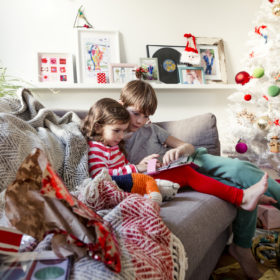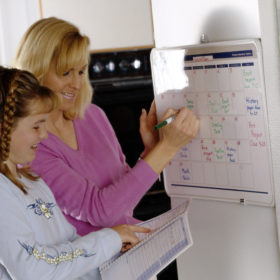The ABCs of Summer Learning: A-M
Or, 13 ways to make learning part of your summer…
A: Activity. Studies have shown that exercise increases blood flow to the brain, which feeds brain cells, and helps to make neural connections strong.
B: Board Games. Not just for rainy summer afternoon inside, board games are actually great learning tools. They help kids develop broader thinking abilities such as strategy, planning, and action-consequence relationships. Plus, they’re great for teaching patience.
C: Crafts. Plan a fun summer-themed craft, such as building popsicle stick cabins, making paper fans and airplanes, or finger-painting. Crafts keep kids focused for long periods of time and are great for motor skill development.
D: Describe. Put your descriptive powers to the test with a describing game. Take turns describing an object without using the words “very” or “really.” Take turns improving on each other’s descriptions and work in literary tools such as alliteration and similes.
E: Eat. Healthy eating and healthy brains go hand in hand. Over the summer remember to encourage kids to eat healthy to foster healthy, and active, brain development. summer and healthy eating go hand in hand thanks to the abundance of fresh (and local) fruits and vegetables.
F: Firsts. Summer is an opportunity to learn a practical skill, perhaps one that school doesn’t teach such as changing a car tire, or rowing a canoe. It’s also the first opportunity many students have to experience school lessons outside of the classroom, such as viewing constellations, or growing a plant from seed.
G: Google. Going on a summer vacation? Have the kids use Google Maps to plan hiking or walking trail, use Google search to find hotels, and use Google images to look up far away places. Kids are great with technology, and being part of the planning helps them feel connected to the plans.
H: Habits. Keep up with school-time habits, such as bedtimes, mealtimes, and wake-up times. Continue to use an agenda or wall calendar to keep track of activities.
I: Inspiration. Summer is the time to discover what inspires you. What is the one thing that drives you? Finding inspiration—be it animals, books, sports, etc.—is an important part of school and learning, because inspiration motivates students when interest in school subjects is lagging.
J: Journal. Start a journal this summer to write down daily thoughts, fun and exciting events, and your feelings. At the end of your summer you’ll be left with a great memento, and stronger writing skills!
K: Kryptonite. Everybody has an area of weakness…(superheroes are no exception.) Without any homework, test, or assignments to complete, summer is the perfect time to focus on weak academic areas, whether it’s reading, math, French, or saving the world.
L: Library. Reading is the most important summer activity and libraries are a critical part of a healthy and engaged relationship with books. Not only do libraries offer summer reading programs for kids, they offer reading lists, they suggest authors, and they even run reading contests. All this for the minimal cost of a library card!
M: Museums. You don’t have to live in an urban metropolis to learn a little more about the history or culture of your area—many small towns have cultural centres that can make for fun afternoon adventures. Make the experience meaningful by talking about the how/why/where of whatever you are learning about.
Read Part 2: N-Z




